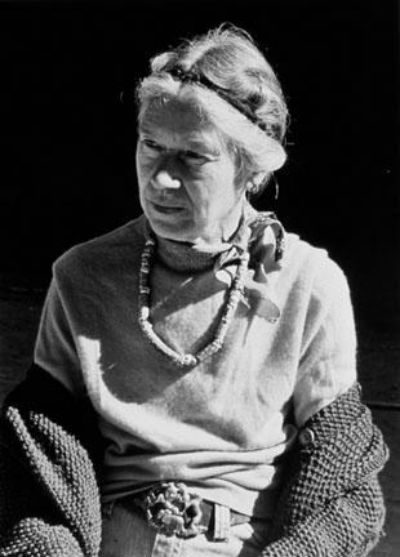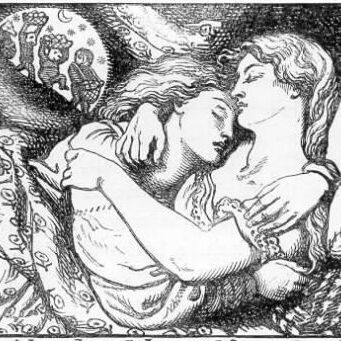
Introducing a new series on notable people, places and events in lesbian history.
Emily Dickinson. Amy Lowell. Gertrude Stein. Adrienne Rich. Chances are you’ve heard of all of these famous lesbian and feminist poets. But did you know that the very first woman to publish an openly lesbian volume of poetry isn’t on this short and venerable list?
That honour belongs to poet and freelance journalist, Elsa Gidlow. Born in England in 1898, Gidlow’s family immigrated to Quebec, Canada when she was just a young girl, and subsequently moved to Montreal when she was 15.
It was then that Gidlow began exploring her craft, seeking out fellow writers and poets. She formed and published Mouches Fantastiques—one of the first gay publications in Canada—with a close friend. They received backlash and criticism for the content of the magazine, but Gidlow stood proud in defiance of her critics.
In 1920, Gidlow moved to New York City. At 21 years old, she began writing for Pearson’s—a literary magazine that gave voice to outspoken poets and those who were against the war.
With this publication, Gidlow was able to find a safe and secure home to express her mind and heart freely, which gave her the confidence and courage to publish her first full volume of poetry. Released in 1923, On A Grey Thread is widely considered to be the first open and honest lesbian work of its kind. Without any ambiguity regarding sexual preference, the poems are raw, lyrical and audaciously dripping with sensuality.
In 1926, Gidlow changed coasts. She settled in the San Francisco Bay area and remained in California pretty much for the rest of her life. She went on to author 13 books and was featured in the 1977 documentary, Word Is Out: Stories of Some of Our Lives.
She published her autobiography shortly before her death in 1986. Elsa, I Come With My Songs was a fitting bookend to Gidlow’s poetic life because she started her illustrious career with the first published an openly lesbian volume of poetry and ended it with the first openly lesbian autobiography.
And, if you didn’t know, now you know.
For the Goddess Too Well Known
I have robbed the garrulous streets,
Thieved a fair girl from their blight,
I have stolen her for a sacrifice
That I shall make to this night.
I have brought her, laughing,
To my quietly dreaming garden.
For what will be done there
I ask no man pardon.
I brush the rouge from her cheeks,
Clean the black kohl from the rims
Of her eyes; loose her hair;
Uncover the glimmering, shy limbs.
I break wild roses, scatter them over her.
The thorns between us sting like love’s pain.
Her flesh, bitter and salt to my tongue,
I taste with endless kisses and taste again.
At dawn, I leave her
Asleep in my wakening garden.
(For what was done there
I ask no man pardon.)


